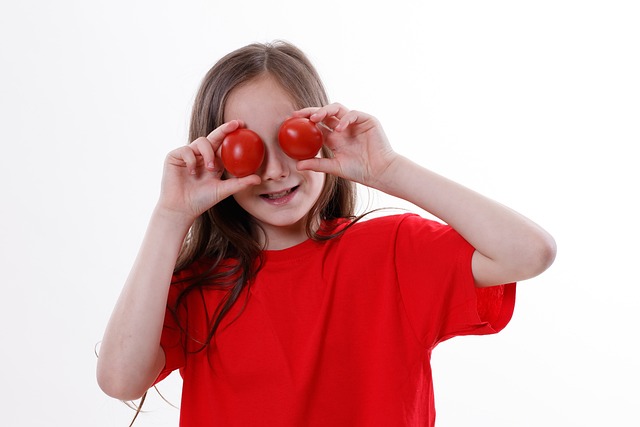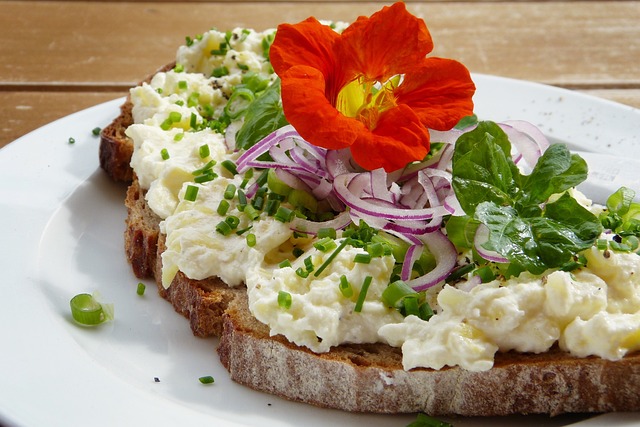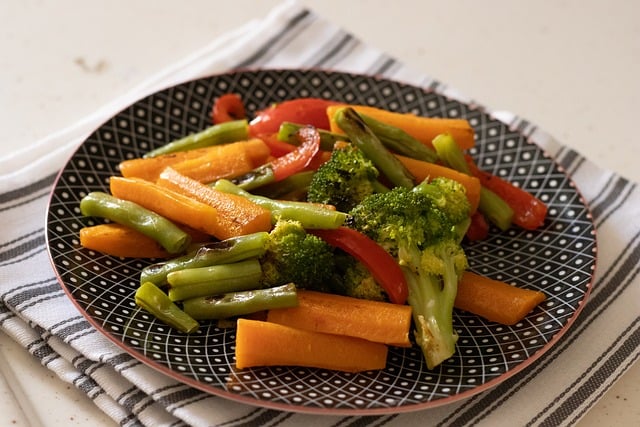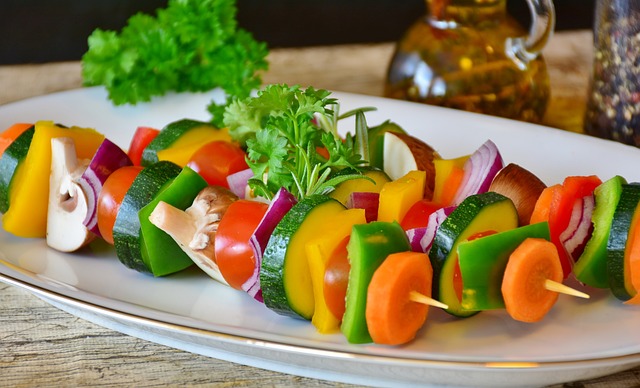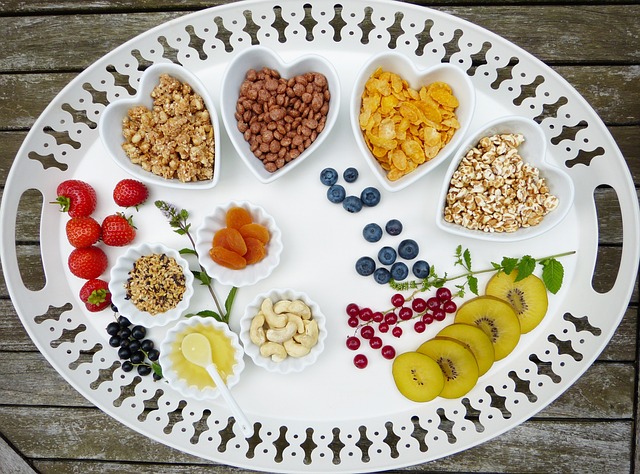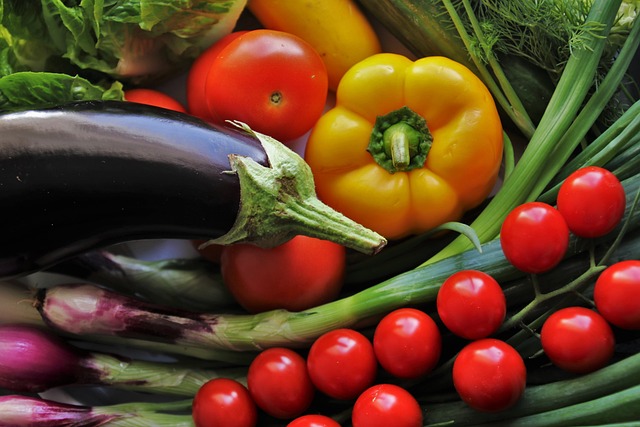Involving Kids in the Preparation of Vegan Meals
The concept of veganism has been gaining increasing popularity in recent years, as more and more people recognize the benefits of a plant-based lifestyle. Veganism involves abstaining from the consumption of animal products and focusing on a diet that is centered around fruits, vegetables, grains, legumes, and nuts.
Developing healthy eating habits in children from an early age is crucial for their overall well-being and future lifestyle choices. Instilling these habits can be a fun and educational experience, especially when it comes to involving kids in the preparation of vegan meals. By actively participating in the cooking process, children can gain a deep understanding of the importance of nutritious food and its positive impact on their health.
Involving kids in the preparation of vegan meals not only inspires their interest in cooking but also serves as an opportune moment to educate them about plant-based nutrition. By engaging children in the selection and preparation of ingredients, they learn about the nutritional benefits of fruits, vegetables, and other plant-based foods. This knowledge can encourage them to be more conscious of sustainable food choices and develop empathy towards animals.
By making the process of cooking vegan meals enjoyable and educational, children can acquire various skills and values that will benefit them throughout their lives. From developing a sense of responsibility and creativity to learning about teamwork and the importance of sustainable food choices, involving kids in meal preparation fosters holistic growth. Moreover, it helps children appreciate the effort and thought that goes into preparing a meal, instilling a sense of gratitude and mindfulness.
In conclusion, involving kids in the preparation of vegan meals is a valuable opportunity to instill healthy eating habits, inspire their interest in cooking, and educate them about plant-based nutrition. By actively participating in the process, children can develop essential life skills and values while gaining a deeper understanding of the benefits of a plant-based lifestyle. So, let’s start involving our kids in preparing vegan meals and let them experience the joy of creating nutritious, delicious dishes that are good for their well-being and the planet.
Table of Contents
Benefits of Involving Kids in Meal Preparation
Involving kids in the preparation of vegan meals can have numerous benefits for their overall development and well-being. By actively engaging children in cooking, we can help them develop a sense of responsibility, creativity, and teamwork.
Cooking requires planning, organization, and attention to detail, which helps children develop a sense of responsibility. From gathering ingredients to following recipes, they learn the importance of being accountable for their actions and completing tasks. This sense of responsibility can extend beyond the kitchen, positively impacting other areas of their lives, such as school, chores, and personal relationships.
Moreover, cooking encourages creativity. By experimenting with different ingredients, kids can learn how to create unique and delicious vegan dishes. They can explore various flavor combinations and textures, enhancing their imaginative and problem-solving skills. Cooking also presents an opportunity for children to express their creativity through food presentation, allowing them to showcase their artistic abilities.
Additionally, involving children in vegan meal preparation can help them understand the importance of sustainable food choices and promote empathy towards animals. As they learn about veganism, they begin to realize the impact of their dietary choices on the environment and animal welfare. By understanding the benefits of plant-based nutrition, they develop a deeper respect for nature, learn to appreciate the interconnectedness of all living beings, and develop a sense of empathy towards animals. This newfound understanding can lay the foundation for a more compassionate and sustainable lifestyle, teaching children the power of their choices in shaping the world around them.
In conclusion, involving kids in the preparation of vegan meals not only provides them with practical cooking skills but also has numerous developmental benefits. Through cooking, children develop a sense of responsibility, creativity, and teamwork. Moreover, it helps them understand the importance of sustainable food choices and promotes empathy towards animals. By engaging children in the kitchen, we empower them to make conscious choices and become ambassadors of healthy, compassionate, and sustainable living for the future.
Creating a Kid-Friendly Vegan Recipe Collection
As parents, it can be challenging to find meals that our children will enjoy and that are also healthy. However, when it comes to vegan cooking, the task becomes even more daunting. But fear not, because creating a kid-friendly vegan recipe collection can be fun and rewarding for both you and your little ones.
Researching and Compiling Recipes
When starting out, it’s essential to do some research on vegan recipes that are not only healthy but also appealing to children. Look for recipes that use familiar ingredients and flavors, such as pasta, rice, and fresh fruits and vegetables. This will make it easier for your kids to try and enjoy these new dishes.
Online recipe websites, vegan cookbooks, and social media platforms dedicated to vegan cooking are great places to find a variety of kid-friendly vegan recipes. Take the time to compile these recipes into a collection that you can refer to when cooking with your children.
Incorporating Variety
To keep your kids interested, it’s important to include a variety of meal options. Start by categorizing your recipes into breakfast, lunch, dinner, and snack options. This way, you can offer your children a different cooking experience each time.
For breakfast, think about vegan pancakes, smoothie bowls, or overnight oats topped with their favorite fruits and nuts. Lunch can be as simple as vegetable wraps or vegan quesadillas. When it comes to dinner, dishes like pasta primavera or vegan mac and cheese can be crowd-pleasers for kids. And don’t forget to include some fun and healthy snack ideas, such as vegan granola bars or homemade fruit popsicles.
Getting Creative
When involving your kids in the preparation of vegan meals, try to make it a fun and creative experience. Encourage them to choose the recipes they want to try, and let them participate in every step of the cooking process. This will not only make them feel empowered but will also spark their interest in vegan cooking.
Give your children tasks appropriate for their age, such as measuring ingredients, mixing, and even some supervised chopping. Encourage them to think outside the box and experiment with different flavors and combinations. They might come up with unique ideas that could become family favorites.
By creating a kid-friendly vegan recipe collection, you are setting the stage for a lifelong love for healthy and sustainable eating. Your children will not only learn essential cooking skills but will also understand the importance of plant-based nutrition and its positive impact on their well-being and the planet. So get started today, and enjoy the process of cooking delicious vegan meals together as a family.
Making the Cooking Experience Fun and Educational
When involving kids in the preparation of vegan meals, it is essential to make the cooking experience both exciting and educational for them. By implementing fun and creative ideas, parents can ensure that their children not only enjoy the process but also learn valuable skills along the way.
Organizing themed cooking nights can be a great way to engage children in the kitchen. Parents can choose a theme, such as “Mexican Fiesta” or “Asian Adventure,” and plan a menu accordingly. This not only adds an element of excitement but also introduces kids to different cuisines and cultures. It allows them to explore diverse flavors and ingredients, broadening their culinary horizons.
Incorporating educational games and quizzes can also make the cooking experience more interactive and informative. Parents can create games that revolve around identifying different fruits and vegetables, learning about their nutritional benefits, or guessing the main ingredient in a dish. This not only makes learning fun but also reinforces the importance of healthy eating habits.
To involve kids in the cooking process, it is crucial to assign them tasks appropriate for their age. Younger children can help with measuring ingredients, such as pouring flour or sugar into a bowl, while older children can handle more complex tasks, such as chopping vegetables (under supervision) or mixing ingredients together. By giving them responsibilities in the kitchen, children develop a sense of accomplishment and responsibility.
Emphasizing the importance of highlighting the nutritional benefits of the ingredients used in the recipes is essential. Parents can engage their children in conversations about the vitamins, minerals, and other nutrients present in fruits, vegetables, grains, and legumes. This not only educates children about the importance of a balanced diet but also helps them make informed food choices. By understanding the nutritional benefits, children become more aware of their overall well-being and the positive impact of their food choices on their health.
In conclusion, making the cooking experience fun and educational for kids is crucial when involving them in the preparation of vegan meals. By organizing themed cooking nights, incorporating educational games and quizzes, assigning age-appropriate tasks, and emphasizing the nutritional benefits of the ingredients, parents can foster a love for cooking and healthy eating in their children. These experiences allow kids to develop essential life skills, cultivate creativity, and instill values of sustainability and empathy towards animals.
Encouraging Healthy Eating Habits
When it comes to encouraging healthy eating habits in children, vegan cooking can play a crucial role. By involving kids in the process of preparing vegan meals, parents can instill a love for nutritious food and encourage them to try new foods and flavors.
One effective strategy is to share tips on incorporating more fruits, vegetables, and whole grains into their diet. This can be done by introducing a variety of colorful fruits and vegetables in their meals, such as fresh berries, leafy greens, and vibrant bell peppers. Encourage kids to choose their favorite fruits to add to a smoothie or as toppings for a vegan yogurt bowl. Incorporating whole grains in recipes like quinoa salads or whole wheat wraps can also increase their fiber intake and provide essential nutrients.
Emphasize the importance of maintaining a balanced and nourishing vegan diet, including the incorporation of essential nutrients like vitamin B12 and iron. Educate kids about the importance of these nutrients and explain how they can be found in plant-based sources, such as fortified cereals and legumes. This can help reduce the misconception that vegan diets are lacking in certain nutrients.
To make this process even more engaging, parents can involve their children in meal planning. Encourage kids to choose one new fruit, vegetable, or grain to try each week. This will not only make mealtime more exciting but also expose them to a wide range of flavors and textures. Additionally, involving kids in grocery shopping and farmers’ market visits can help them develop a deeper appreciation for fresh, locally sourced ingredients.
By incorporating these strategies, parents can inspire their little ones to develop a lifelong love for healthy eating. Not only will kids learn about the benefits of a plant-based diet, but they will also gain valuable skills in the kitchen and become more adventurous eaters. Remember, creating positive associations with food and involving children in meal preparation are powerful tools for instilling healthy habits that can last a lifetime.
Conclusion
In conclusion, involving kids in the preparation of vegan meals is a valuable way to promote healthy eating habits and educate them about plant-based nutrition. By actively involving children in the cooking process, parents can instill a sense of responsibility, creativity, and teamwork in their kids. This hands-on experience can help children understand the importance of sustainable food choices and develop empathy towards animals.
Parents are encouraged to start involving their kids in the cooking process as early as possible. This not only allows them to spend quality time together but also teaches children lifelong skills and values. By learning how to prepare vegan meals, kids can develop a deeper appreciation for food, understand the nutritional benefits of various ingredients, and gain confidence in their abilities to create delicious and healthy meals.
Furthermore, involving kids in vegan meal preparation can have a positive impact on their well-being and the planet. By focusing on plant-based nutrition, children will be encouraged to try new foods and flavors, leading to a more diverse and balanced diet. This lifestyle promotes the consumption of fruits, vegetables, and whole grains, which are essential for their overall health. Additionally, by choosing vegan options, kids can contribute to reducing their carbon footprint and protecting animal welfare.
Involving kids in the preparation of vegan meals is not only beneficial for their immediate well-being but also for their long-term health and the future of the planet. By teaching children about healthy eating habits and sustainable food choices, parents are empowering them to make informed decisions about their diet. It is through these experiences that children can become advocates for healthy living and contribute to a more compassionate and sustainable world.
So, why wait? Start involving your kids in vegan meal preparation today and watch as they develop a love for cooking, learn important life skills, and make a positive impact on their own well-being and the world around them. The journey towards a healthier and more conscious lifestyle starts in the kitchen, with the involvement of kids in preparing nutritious and delicious vegan meals.

